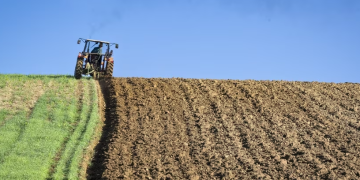#Agriculture #SustainableFarming #AgriculturalSubsidies #ClimateAdaptation #SwissFarming #InnovationinAgriculture #SustainabilityStrategies #Climate-ResilientCrops #AgriculturalPolicies #SwissGovernmentInitiatives
Explore the recent developments in Switzerland’s agricultural landscape. Delve into the government’s decision to reduce agricultural subsidies, its implications on farmers, and the strategic allocation of resources to foster sustainability amidst climate challenges. Stay informed about the evolving strategies shaping Swiss farming from 2026 onwards.
In a bid to shape a more sustainable future, the Swiss government has initiated a pivotal process of public discourse and interdepartmental consensus. This undertaking revolves around a resolution proposal, outlining the maximal limits of subsidies allocated to domestic agriculture. Spanning from 2026 to 2029, Switzerland’s agricultural sector is slated to receive a total of 13.67 billion Swiss Francs (approximately 15.13 billion US dollars), marking a 2.5% reduction compared to the support provided during the 2022-2025 period. On October 11, 2023, the Federal Council, Switzerland’s executive body, set this resolution’s discussion and interdepartmental coordination into motion.
The reduction, amounting to 347 million Swiss Francs, is chiefly tied to cost-cutting measures delineated in the Federal Council’s 2024 budget framework. This shift is underscored in a special government press release. Significantly increased funds will be allocated to adapt agricultural production to the adverse consequences of climate change. Consequently, a considerably larger portion of resources than before will be directed towards structural enhancements in agriculture (a plus of 86 million), as well as projects involving the selection of disease-resistant crop varieties and safeguarding agricultural cultures (an additional 24 million). These funds will be sourced from categories like “Direct Payments” (a decrease of 92 million) and “Production and Marketing” (a reduction of 18 million).
In Switzerland, the maximum amounts of budgetary subsidies, known as expenditure ceilings, are established by the parliament for various systemic necessities. The discussion and interdepartmental consensus period will extend until January 24, 2024.
Switzerland’s recalibration of agricultural subsidies signifies a strategic shift toward sustainability. By emphasizing climate adaptation and innovation, the country aims to fortify its farming practices for the challenges of tomorrow. This reduction in subsidies, while initially daunting, prompts Swiss farmers and agricultural stakeholders to explore innovative methods, resilient crop varieties, and sustainable agricultural techniques. Adapting to these changes will not only ensure the economic stability of the agricultural sector but also pave the way for a greener, more sustainable future.































